
Carolyn Gramling is the Earth & Climate writer at Science News. Previously she worked at Science magazine for six years, both as a reporter covering paleontology and polar science and as the editor of the news in brief section. Before that she was a reporter and editor at EARTH magazine. She has bachelor’s degrees in Geology and European History and a Ph.D. in marine geochemistry from MIT and the Woods Hole Oceanographic Institution. She’s also a former Science News intern.

Trustworthy journalism comes at a price.
Scientists and journalists share a core belief in questioning, observing and verifying to reach the truth. Science News reports on crucial research and discovery across science disciplines. We need your financial support to make it happen – every contribution makes a difference.
All Stories by Carolyn Gramling
-
 Climate
ClimateHalting irreversible changes to Antarctica depends on choices made today
Antarctic Peninsula projections show accelerating ice loss, warming oceans and global sea level impacts tied to greenhouse gas emissions.
-
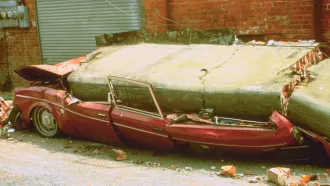 Earth
EarthA long-lost tectonic fragment may be shaking Northern California
Seismic tremors reveal a shallow fragment of an ancient tectonic plate beneath Northern California, helping explain damaging earthquakes near the surface.
-
 Climate
ClimateEarth’s last 3 years were its hottest on record
An analysis of global climate data shows sustained warming even as El Niño faded.
-
 Paleontology
PaleontologyThese fossil finds shed new light on the past in 2025
The year's top paleontological wonders ranged from a 540-million-year-old penis worm to a decades-old rodent impression.
-
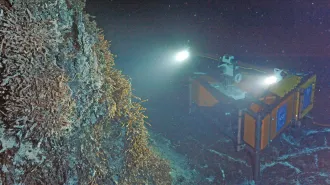 Earth
EarthAn underwater volcano off Oregon didn’t erupt in 2025 after all. Why not?
Data from Axial, the most-monitored underwater volcano, are helping geophysicists hone eruption predictions. For Axial, 2026 is their next bet.
-
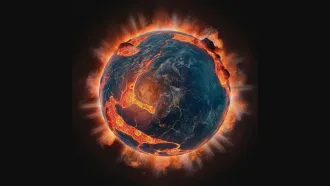 Earth
EarthEarly Earth’s belly held onto its water
When the early Earth’s magma ocean crystallized 4.4 billion years ago, the deep mantle trapped an ocean’s worth of water, scientists say.
-
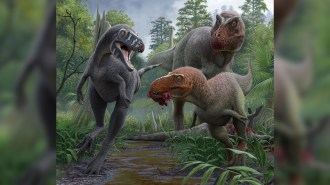 Paleontology
PaleontologyNanotyrannus is still not a teenage T. rex
Nanotyrannus wasn’t a juvenile T. rex but a petite adult of a separate species, a new study of fossil hyoid bones finds, bolstering a recent report.
-
 Earth
EarthA volcanic eruption might have helped bring the Black Plague to Europe
A volcanic eruption may have triggered a deadly chain of events that brought the Black Plague to Europe in the 14th century.
-
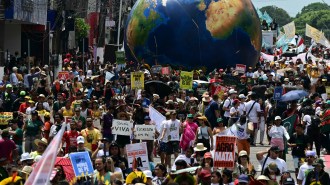 Climate
ClimateHere are 3 big ideas to combat climate change, with or without COP
As action from the U.N.’s huge COP30 international meeting falls short, smaller groups are banding together to find ways to fight climate change.
-
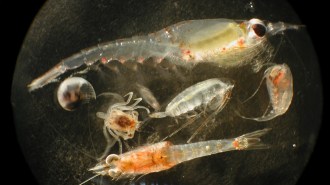 Oceans
OceansDeep-sea mining might feed plankton a diet of junk food
An analysis of mining plumes in the Pacific Ocean reveals they kick up particles sized similarly to the more nutritious tidbits that plankton eat.
-
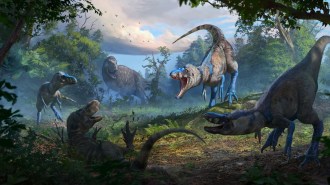 Paleontology
PaleontologyNanotyrannus was not a teenaged T. rex
A new Nanotyrannus fossil suggests the diminutive dino lived alongside T. rex in the late Cretaceous Period.
- Climate
Hurricane Melissa spins into a monster storm as it bears down on Jamaica
The story of Atlantic hurricanes is treading a familiar — and frightening — path: Climate change is fueling huge, slow-moving, rain-drenching storms.